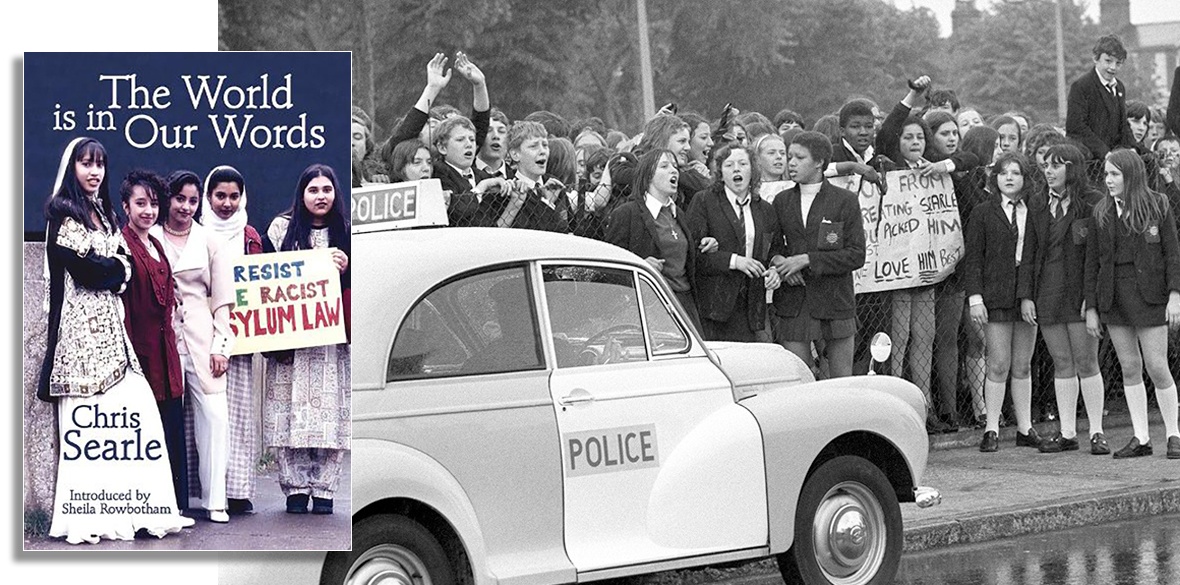This is the last article you can read this month
You can read more article this month
You can read more articles this month
Sorry your limit is up for this month
Reset on:
Please help support the Morning Star by subscribing here
The World is in Our Words
by Chris Searle, Five Leaves Publications, £12.99
THE second part of Chris Searle’s story, The World is in Our Words, begins in 1979, the year that saw momentous challenges to all progressive forces in Britain with the election of Margaret Thatcher as prime minister.
This and the first memoir, Isaac and I, share the same subtitle: A Life in Poetry.
Searle chose to repeat the subtitle because “poetry and its stories and words have always been an essential part of my life as a teacher, and the means that I have used to speak and forge imaginative empathy amongst the people I have taught.”
Searle shows a commitment throughout the book for an education that is something more than participating — if you could — in the crumbling Britain of the time.
It’s a demonstration that while the resistance to Thatcher’s Tories took place industrially and against the authoritarianism of policies such as “stop and search,” education and poetry also offered a means, as Searle says, to strive for “human betterment.”
Education has always been seen as key to emancipation but the role of poetry, particularly within the young black community of the time of which I was a part was, I think, a harder sell.
Yet Searle shows in this book how he was able to engage with young black people of that time of deindustrialisation, police harassment and attacks from organisations such as the National Front.
Searle was clearly able to show how poetry did not just have to be about green pastures and rolling hills that many inner-city black kids had never experienced.
Poetry could be used to talk about their lived experiences but also to talk about the beauty they saw from their own perspectives.
And, importantly, he appears to have managed this in a non-condescending way that many in the progressive movement can still learn from.
The book follows Searle’s teaching and activism from east London to Manchester and Sheffield with experiences from Canada thrown into the mix.
Throughout the memoir it’s clear that he is concerned with fighting real battles against racism rather than the artificial ones that seem to have more to do with tickling the egos of those waging them rather than actually making a difference.
One story is of being a head teacher in Sheffield, and how his fight to empower black students led to him being sacked and sparked a high-profile strike by pupils.
This and other accounts shared in this excellent memoir show that there are never easy victories in the fight for racial justice but that standing together in solidarity at least gives us a chance to win.
Searle says his life in education and poetry can easily be seen as one of “sometimes lost causes, but losses which are part of a greater trajectory towards betterment and freedom.”
That seems to me perfectly to sum up the life of a political activist but also someone who engages in the cause of anti-racism.
If you are in need of some inspiration from someone who has engaged in the ups and downs of the anti-racist struggle look no further than this engaging memoir.












